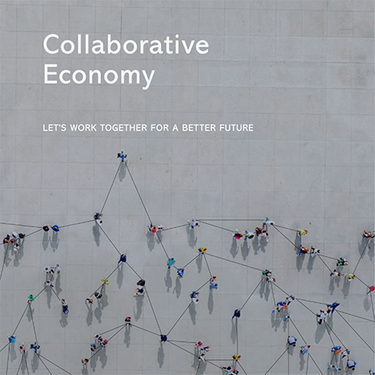
The collaborative economy, also known as the sharing economy, has experienced exponential growth over the past decade. This economic model, based on the exchange of goods and services between peers, is transforming sectors such as transportation, accommodation, tourism, and professional services.
Opportunities offered by the collaborative economy:
Greater access to goods and services: The collaborative economy allows people to access a wide range of goods and services that they might not otherwise afford or access. For example, platforms like Airbnb have democratized access to accommodation, allowing people worldwide to rent rooms or apartments at more affordable prices than traditional hotels.
Job creation: This model generates new job opportunities for people, especially those seeking flexibility and autonomy. Platforms like Uber or Cabify have created millions of jobs for drivers worldwide.
Economic efficiency: The collaborative economy can improve efficiency in resource allocation, reducing waste and idleness. For example, platforms like BlaBlaCar allow users to share car rides, reducing the number of vehicles on the road and carbon emissions.
Sustainability: This model can promote sustainability by reducing resource consumption and waste generation. For example, platforms like Thredup allow users to buy and sell second-hand clothing, reducing the need to produce new garments.
Social development: The collaborative economy can strengthen communities and foster collaboration among people. Platforms like Meetup allow people to connect with others who share their interests, creating new opportunities for social interaction and learning.
Challenges faced by the collaborative economy:
Precarious work: Some workers in the collaborative economy may face precarious conditions, such as low pay, lack of social security, and labor protection. Uber drivers, for example, are not considered employees by the company, meaning they do not have access to benefits like health insurance or paid vacations.
Economic inequality: The collaborative economy can increase economic inequality by primarily benefiting platforms and workers with high levels of capital and skills. Airbnb hosts in tourist cities, for example, can make large profits, while workers cleaning properties or preparing meals may earn very low wages.
Impact on traditional businesses: The collaborative economy can challenge traditional businesses, leading to job losses and disruption in some sectors. The hotel industry, for example, has been affected by the growth of Airbnb, forcing traditional hotels to adapt to new competition.
Regulation: There is a need to develop an appropriate regulatory framework for the collaborative economy that protects consumers and workers without hindering innovation. Some governments have begun to regulate this sector, but much remains to be done to create an effective regulatory framework.
Unfair competition: Some platforms may compete unfairly with traditional businesses by not paying taxes or complying with the same regulations. Uber, for example, has been accused of unfair competition for not complying with local taxi regulations.
Trends to watch:
Market growth: The collaborative economy is expected to continue growing in the coming years, expanding into new sectors and geographies. The global collaborative economy market is estimated to reach $335 billion by 2025.
Increased specialization: Collaborative economy platforms are specializing in specific niches, offering more personalized services tailored to users' needs. For example, there are platforms offering bike rental services, tools, workspace, etc.
Integration with technology: Artificial intelligence, blockchain, and other disruptive technologies are transforming the collaborative economy, creating new opportunities and challenges. Artificial intelligence, for example, is being used to enhance user experience, personalize services, and prevent fraud.
Greater focus on sustainability: Platforms and consumers are increasingly concerned about the environmental impact of the collaborative economy, which will drive the adoption of more sustainable practices. Some platforms, for example, are offsetting carbon emissions from their trips or promoting the use of public transportation.
Regulation debate: The debate over regulation of the collaborative economy will intensify in the coming years, seeking a balance between consumer and worker protection and the promotion of innovation. Governments must find solutions that allow this economic model to have a positive impact on society.
The regulation of the collaborative economy is a complex issue that requires open and constructive debate. Governments must work with all stakeholders to find solutions that allow this economic model to have a positive impact on society.
The collaborative economy has transformed the global economic landscape, empowering people, driving innovation, and redefining how we interact with goods, services, and resources. However, to reach its full potential and build a more equitable and sustainable future, it is crucial to address the challenges faced by this model.
Finding a balance between consumer and worker protection, promoting innovation, and sustainability will be essential for the success of the collaborative economy in the future. Governments, platforms, workers, and consumers must work together to develop solutions that benefit everyone.
The collaborative economy has the potential to create a more positive future for all. By working together, we can ensure that this model develops responsibly, equitably, and sustainably.
Thanks for reading us,
Little Connexions
